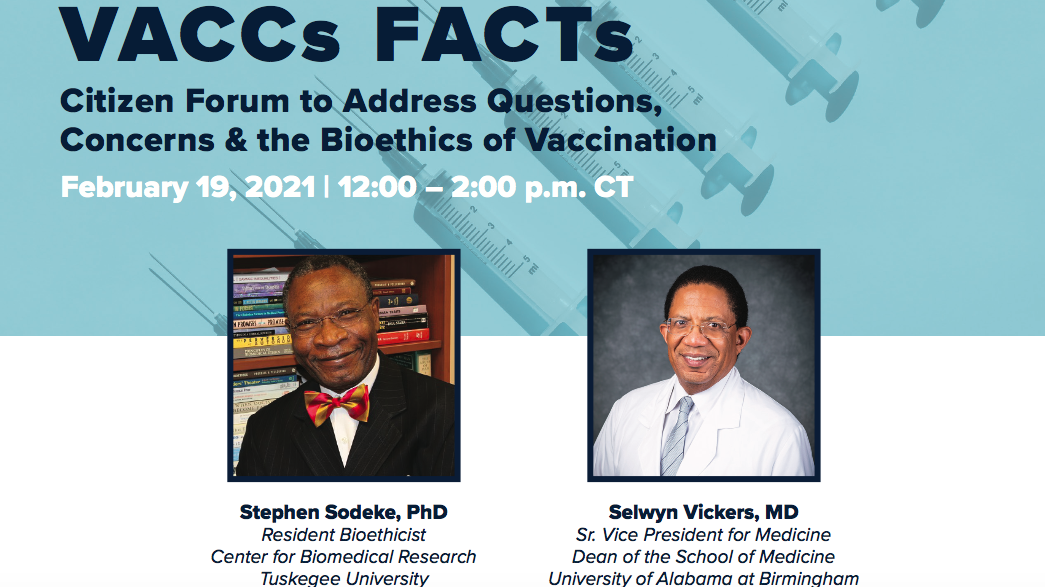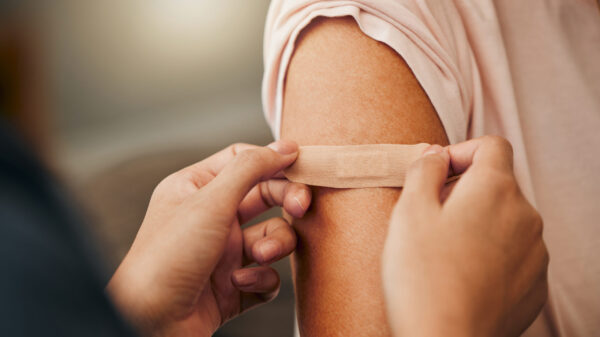Black Alabamians and other marginalized groups are being vaccinated for COVID-19 in much fewer numbers than white Alabamians, and to help address vaccine hesitancy in minority communities, leaders from Tuskegee University and the University of Alabama at Birmingham School of Medicine will hold a virtual town hall on Friday.
Those leaders will answer questions and discuss the safety of the vaccine, the bioethics of the vaccine and the underlying factors of vaccine distribution, according to a UAB press release.
They will also address concerns about past experiments, including the Tuskegee syphilis experiment, where the U.S. government began an experiment in 1932 using 600 Black men, unbeknownst to them, to study the effects of untreated syphilis.
The town hall event will be held via Zoom and is open to the public.
The panelists include Stephen Sodeke, a resident bioethicist at Tuskegee’s national center for bioethics in research and health care, and Dr. Selwyn Vickers, dean of the University of Alabama at Birmingham School of Medicine. Lonnie Hannon III, director of Community Engagement and associate professor in Tuskegee’s department of psychology and sociology, will moderate the town hall.
A recent survey by Pew Research found that although 71 percent of Black Americans in the U.S. know someone who has been hospitalized or died from coronavirus, just 42 percent responded they would get vaccinated.
Just 11 percent of Alabamians who have been vaccinated are Black, according to the Alabama Department of Public Health’s COVID-19 vaccination dashboard, although the department believes the data is incomplete and race and ethnicity aren’t being collected in all vaccinations.
The state data does track closely with national data, however. A CDC report on Feb. 1 noted that race and ethnic data were available for 51 percent of people vaccinated in the U.S. between Dec. 14 and Jan. 14. Of the data available, 60 percent of those vaccinated were white, 11 percent were Hispanic, and 5 percent were Black.
Friday’s event is sponsored by the Alabama Community Engagement Alliance Against COVID-19 Disparities, an NIH-funded academic-community partnership with the goal of facilitating the inclusion and participation of underserved minorities in the COVID-19 vaccination, according to the group’s website.
When: Friday, Feb. 19, 12 p.m. to 2 p.m.:
- From 12 p.m. to 12:30 p.m., there will be an introduction and a performance by a local gospel singer
- The actual discussion and Q&A will take place from 12:30 p.m. to 2 p.m.
Zoom link: bit.ly/vaccs-facts














































